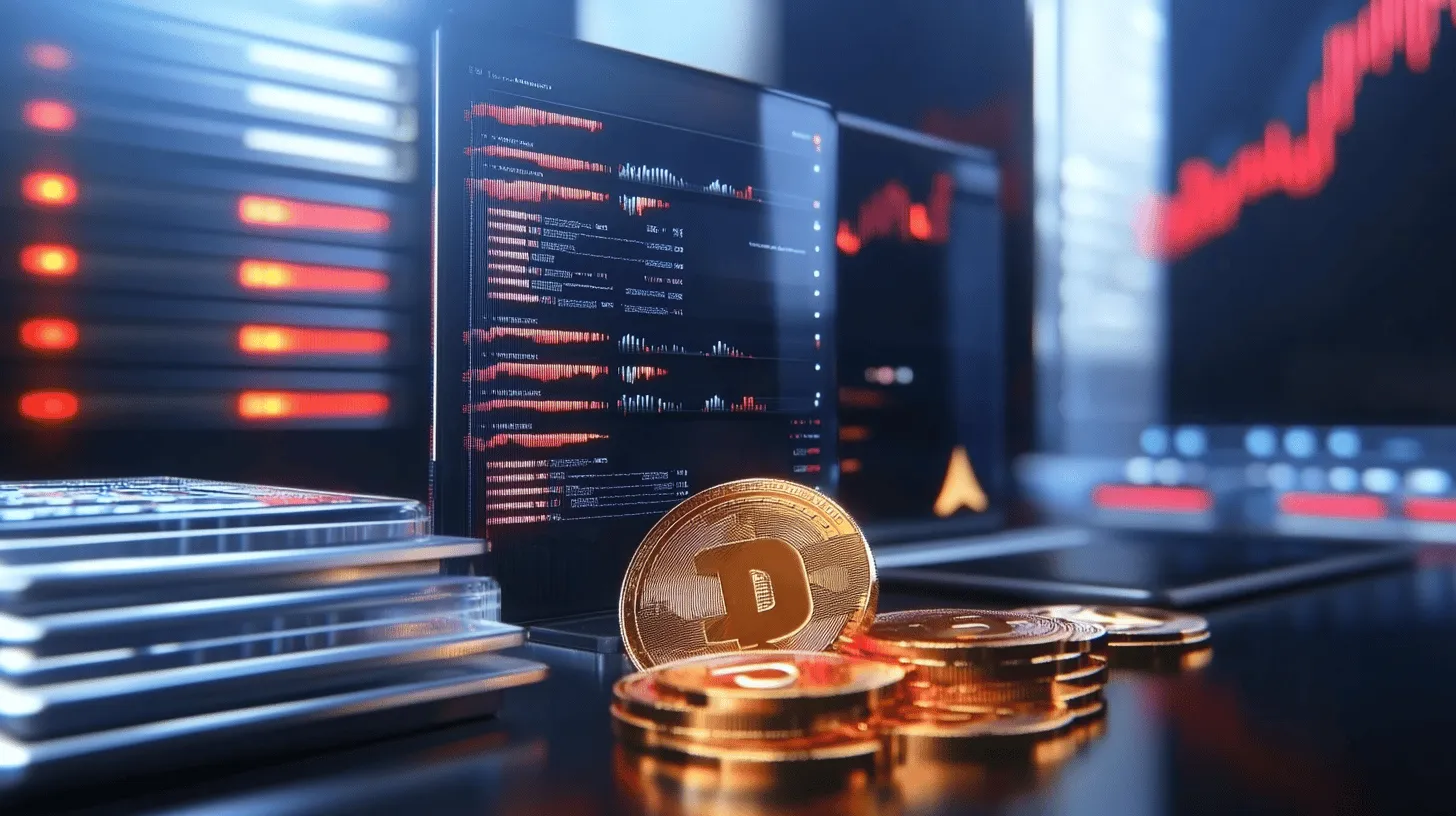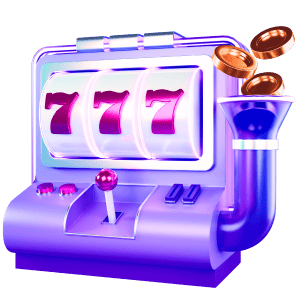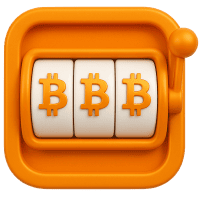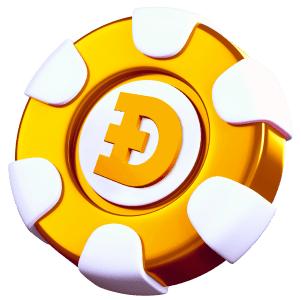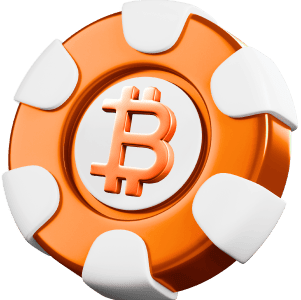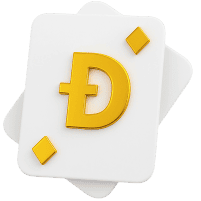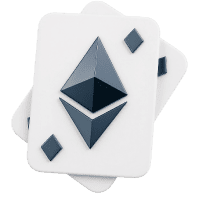Blockchain technology is making significant strides in various areas of life, and real estate is no exception. This can be seen in the development of dedicated and decentralised property marketplaces such as Propy and Ubitquity.
In 2025, tokenised real estate is the new trend gaining a lot of momentum. This promises to change the way the marketplace is typically viewed, as well as empowering customers to buy, sell and rent. In this article, let’s look at what tokenised real estate is, what the market’s prospects are in 2025 and which projects are worth paying attention to.
Property market
Buying a flat, plot, warehouse, shop – for many years it has been considered a popular way to preserve and multiply capital. No changes are expected in the coming years and the property market will remain one of the largest in the world. Almost anyone from tenants to property owners, as well as employees of offices, shops or factories, are closely connected to this market.
If we compare this market with others, it has a notable disadvantage – low liquidity. This is due to the following:
- it can take weeks, and in some cases whole months, to find a buyer or tenant;
- uncertainty can arise due to price fluctuations during the sale;
- the actual closing of the transaction may take several days;
- in most cases, difficulties arise if multiple service providers are involved in the transaction.
Tokenised real estate crypto solves this problem. Here, clients get higher liquidity and hence can benefit more quickly from price fluctuations in the market. One can truly evaluate the potential of real estate tokenisation by examining the key aspects: basic principles, legal regulations, technological features, possible benefits and existing challenges. Having a clear understanding of these aspects is crucial for those considering entering this area of investment.
What is tokenised real estate?
Tokenised real estate is the process of digitising the ownership of real estate assets (e.g. buildings, land, flats) through the issuance of tokens on the blockchain. Each token represents a share of ownership of a property, allowing investors to buy even small portions of larger properties, making the investment more affordable and liquid.
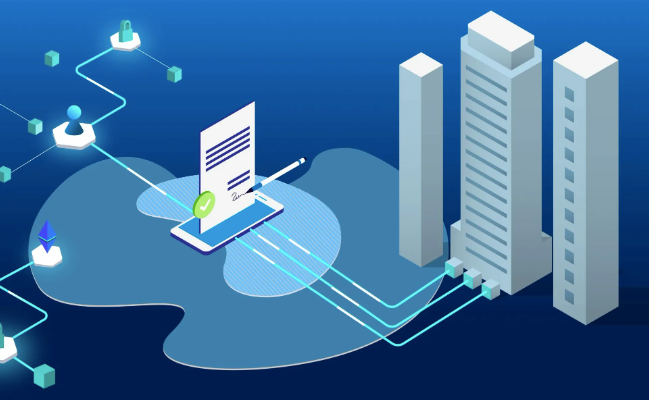
In 2025 and 2026, real estate cryptos will change the way people deal with property. It is about converting real assets into digital tokens that can be owned by multiple people. Smart contracts are very important and work like digital transactions. When the conditions are met, they automatically take effect, which simplifies the process.
Imagine how much blockchain improves the industry. Smart contracts allow changes to be made to the land registry automatically and without human involvement. Blockchain verifies all records and conducts transactions, making the process not only faster but also safer.
The combination of blockchain marketing and tokenised real estate can allow buyers and sellers to transact directly, securely and transparently on a peer-to-peer platform with lower fees.
If you are considering the idea of tokenising your assets and dividing them into smaller pieces, it is best to use ERC-721 tokens created on the Ethereum blockchain. They have a high level of security as the protocol spells out the rules of use and transfer of rights. You will be able to sell part of the tokens, receiving income for it.
Like conventional, tokenised real estate is sold and bought, but the transition to digital format, opens up new prospects for owners. The possible effects on the property market are great, providing greater liquidity and simplifying the business process of interested companies.
Experts believe that buying tokenised real estate will be a good investment, as the market will continue to grow in the next two years. This is due to the improvement of technology, greater trust in crypto projects, as well as the search for new ways to earn money.
How real estate tokenisation works
Real estate tokenisation is the process of converting real assets such as buildings, houses or commercial properties into digital assets (tokens) that represent ownership interests in those assets. Let’s break down how it works.
Step 1: Selecting a property
The first step is to select a specific property to be tokenised. It can be a residential building, an office building, a warehouse or another type of property.
Step 2: Valuation and legal registration
At this stage, the market value of the property is assessed. Then lawyers draw up all necessary legal documents confirming ownership and compliance with legal requirements.
Step 3. Creation of a smart contract
After valuation and legal formalisation, a smart contract is created on a blockchain platform. The smart contract contains the terms of the transaction, such as the number of tokens, their value, revenue sharing, and other important details.
Step 4: Issuance of tokens
Next, tokens representing ownership interests in the property are issued. These tokens are placed on the blockchain where they can be bought and sold by market participants.
Step 5: Selling the tokens
Tokens are sold to investors through specialised platforms or exchanges. Buyers receive tokens that confirm their ownership stake in the property.
Step 6: Management and returns
Token owners are entitled to receive income from renting or selling the property in proportion to their share. The property is managed by a management company, which oversees the operation of the property and the distribution of profits to the token holders.
Real estate tokenisation is an innovative way of investing in the real economy, opening new horizons for investors and asset owners.
The role of blockchain in the real estate tokenisation process
Blockchain plays a key role in the real estate tokenisation process, ensuring the reliability, transparency and security of the entire system. The technology acts as a secure, transparent digital registry for secure transactions.
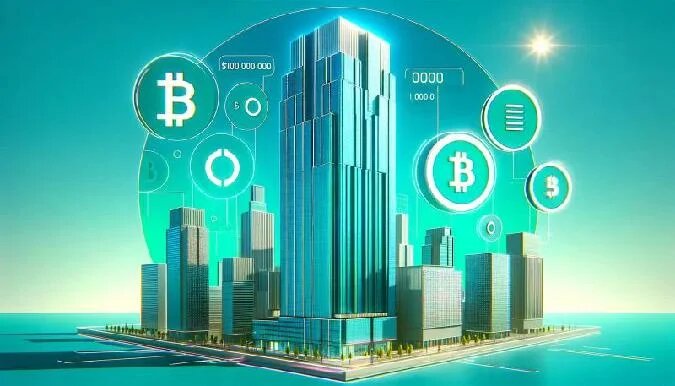
Without blockchain, real estate coins would not exist, as the Ethereum or Solana protocols provide a transparent digital record that guarantees the security of transactions. In the case of asset tokenisation, blockchain platforms create a digital version of an asset by dividing it into individual tokens. Each token is a certain share in the ownership of the asset. They can be traded on decentralised platforms.
Tokenisation and smart contracts
Another driving engine of the invisibility tokenisation sphere is smart contracts. These digital agreements need to fulfil certain requirements to be self-executing. They automate the process of transferring ownership, provided the new owner has correctly completed the application and has enough funds for the purchase. The seller receives the money and the buyer gets a share in the selected property. This streamlines and simplifies the buying and selling process.
Strict security measures are necessary to prevent fraud and illegal interference in transactions. To protect tokenisation transactions, advanced security methods including encryption, multi-factor authentication and biometric identification such as fingerprint scanning are used.
Which blockchains will be used for real estate tokenisation
A variety of blockchains are being used for real estate tokenisation, each with its own unique characteristics and benefits. Some of the popular ones include Ethereum, Tezos, Binance Smart Chain, Polkadot and Solana. The choice of blockchain depends on the goals of the project, the rules and the technology available.
Benefits of real estate tokenisation
All parties benefit from the new direction of the cryptocurrency market: investors, owners, agents, companies. All of them can take advantage of the tokenisation of properties to get additional profit.
Let’s tell you what benefits sit from owning real estate cryptocurrency coins:
- Increased cash flow. Real estate tokenisation allows people to own part of a property, which increases the number of potential customers and also allows them to realise expensive assets. This is beneficial for both people looking to sell a house or plot faster and buyers.
- Owning part of something huge. Tokenising assets allows you to divide the property into individual shares. These can be purchased by a single investor, or by people who are strangers to each other and have only bought part of the property.
- Accessibility. The conversion of real assets into digital ones expands the geography of clients. Now there are no strict restrictions on buying and selling. One object can be owned by people from different countries, as there are individual tokens for sale, not the whole object.
- More openness. Tokenised property transactions are more open, as it clearly shows who owns what and how much it is worth. This is beneficial for companies that invest in property. They get access to more data.
- Cost-effectiveness. Real estate tokenisation can reduce the cost of traditional transactions, making this option attractive to a wide range of people. The market is replenished with new properties, because tokenised assets increase liquidity, offering owners more options and a variety of property options.
- 24/7 shopping. Tokenisation allows sellers and buyers to transact around the clock, as once the asset is digitised, a smart contract is responsible for everything. This gives buyers and property companies more freedom at all times.
Challenges of real estate tokenisation
Even top real estate cryptocurrency is not without its drawbacks, as this field is just emerging and faces certain challenges. Here are the main risks that anyone looking for opportunities in this new field should consider.
Insufficient rules and regulations
Many countries have not yet developed clear legislation governing real estate tokenisation. The lack of legal certainty makes it difficult to create and operate tokenisation platforms, and raises doubts among investors.
Liquidity issues
While tokenisation promises to increase liquidity, in reality it may face a lack of demand in the secondary market. The lack of popularity of tokenisation among a wide audience may limit the ability to sell assets quickly.
Communication and confidence building
It is important to achieve a high level of investor confidence that will generate market interest. This is possible by clearly communicating the tokenisation process, removing doubts about market value and gaining the trust of users.
Security
Storing digital assets requires a high level of information security. Loss of private keys or hacking of accounts can lead to loss of control over the assets.
Legal uncertainty of ownership
Despite the availability of digital certificates evidencing ownership of interests in real estate, the legal status of such tokens remains unclear in many jurisdictions. Questions about how these certificates relate to traditional forms of ownership require further resolution.
These problems require comprehensive solutions that include both technological improvements and active co-operation between government agencies, developers and market participants. Overcoming these complexities will help tokenised real estate become more popular and successful.
How to start investing in tokenised real estate
Investing in tokenised real estate can be lucrative, but it is important to assess realistic growth prospects as there remain risks of losing money. Below is a step-by-step algorithm on how to buy top real estate cryptocurrency:
- Choose a platform. Look for one with a good reputation, user-friendly interface and experience.
- Create an account. Register, go through verification if necessary.
- Choose an investment target. Think about things like expected rental income, property type and location. Each property should include comprehensive details, including photos and descriptions.
- Check the documentation. Pay attention to all the documents that are available for the property.
- Start Investing. Purchase digital tokens that signify ownership of the property or part of it.
- Keep track of your investments. On the platform, you can track income from tokens, rentals or other sources of income.
- Use secondary markets. You can sell tokens if you decide to close your tokenisation or diversify your assets.
Real estate tokenisation is fairly new, and there are few specialised tools and platforms to explore this topic yet. However, you can get help from industry groups and tokenisation service providers such as the International Token Standardisation Association (ITSA) and the Global Blockchain Business Council (GBBC).
Popular real estate tokenisation platforms
A list of popular platforms that offer various solutions for the real estate tokenisation industry.
Propy
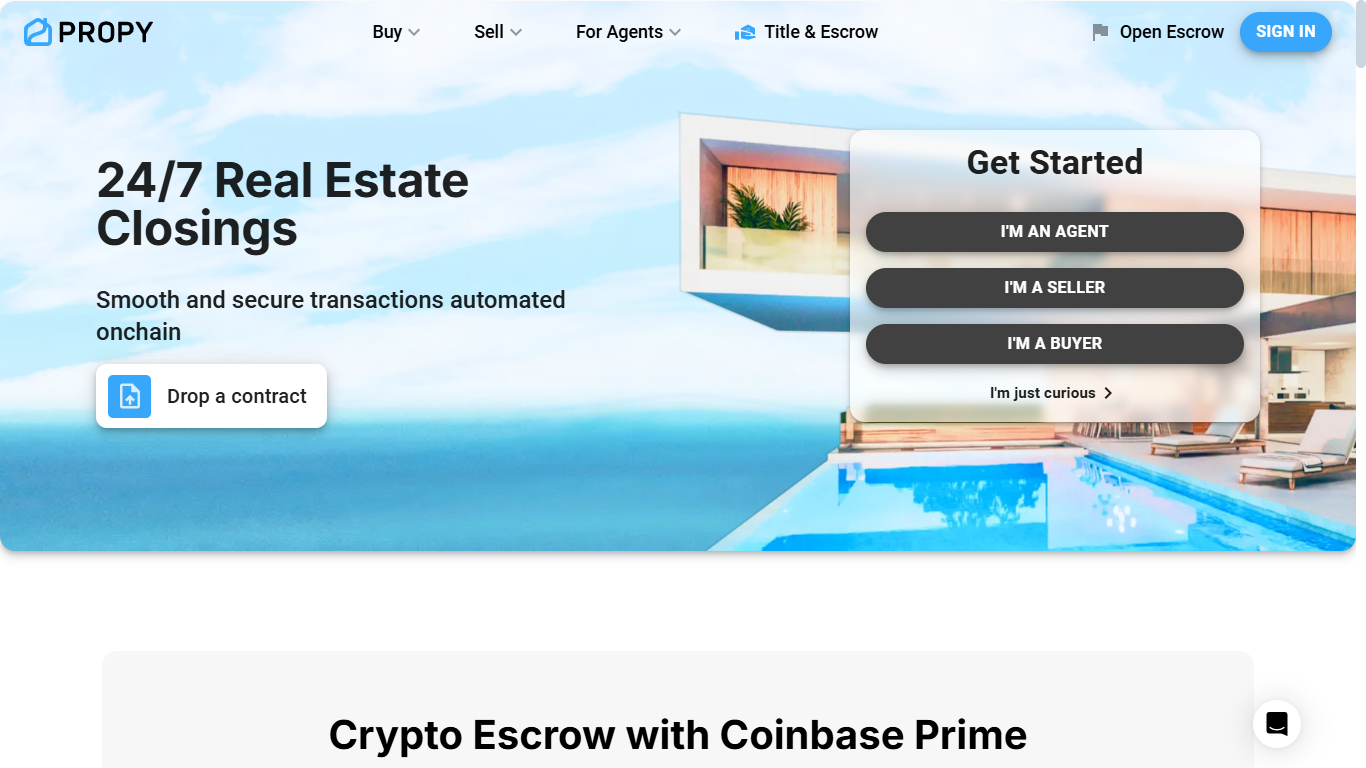
Propy is a real estate transaction platform that empowers buyers, sellers, their agents and escrow agents to complete traditional property transactions entirely online. Propy is known for its innovation in automating property buying and selling processes using blockchain. The platform also offers property tokenisation services.
BlockchainX
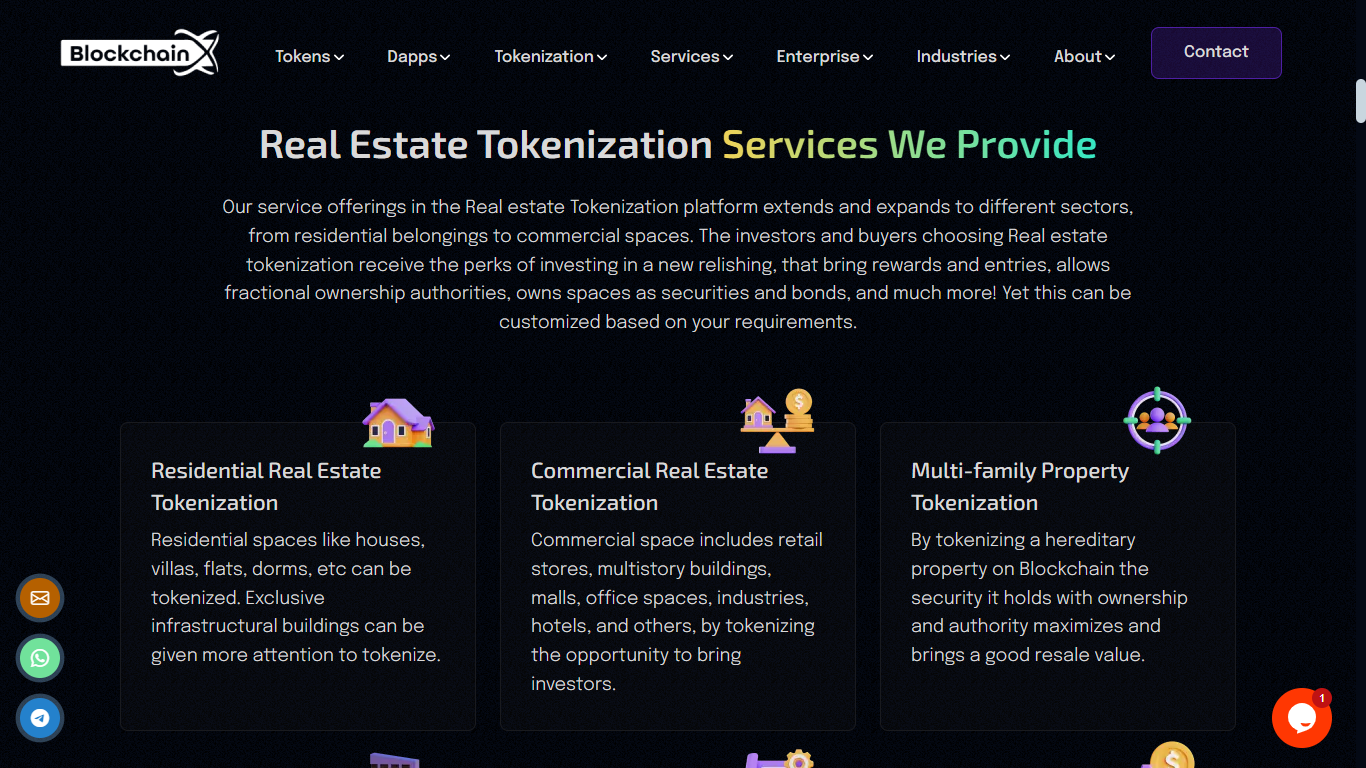
BlockchainX is a blockchain development company dedicated to providing business solutions to improve the efficiency of their operations. The platform provides various services related to the development of blockchain solutions from scratch, as well as ideation and market analysis of products and services.
Roofstock

Roofstock is a blockchain-based platform that aims to simplify the process of investing in single-family rental housing. Ï The project aims to make the process of buying and managing rental homes easier for investors. Roofstock allows buyers to find suitable properties, analyse investment opportunities and manage rental homes remotely.
Harbor

Harbor provides institutional investors and individuals with access to tokenised assets, including real estate. The platform offers a wide range of services related to token management and compliance. The project was founded in 2017 and aims to create a transparent and secure ecosystem for investors and token issuers. Harbor actively cooperates with major financial market players and companies from various industries, helping them implement innovative blockchain-based solutions.
RealT
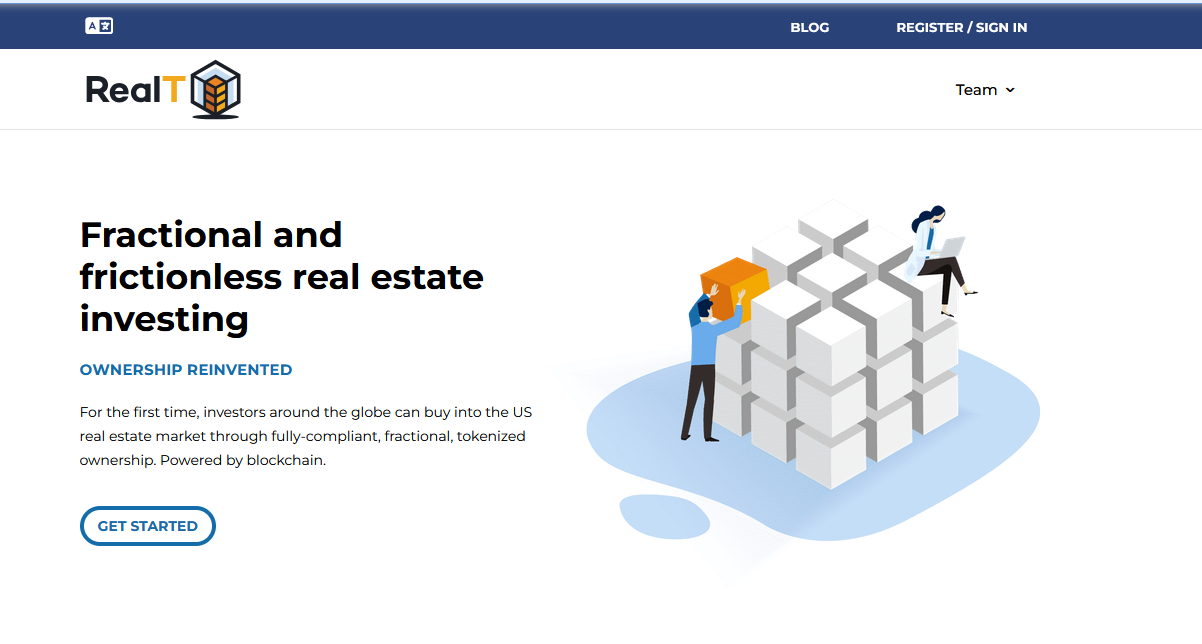
RealT is a platform for tokenised real estate investments. It allows the purchase of real estate shares in the US and Europe in the form of digital tokens called RealTokens.
These tokens are issued on Ethereum and Gnosis Chain blockchains, which provide security, transparency and traceability of transactions. Each token represents an ownership stake in a property and entitles the holder to receive a share of rent proportional to the ownership stake. The project has been running since 2019.
The future of real estate tokenisation
Real estate tokenisation is gradually changing the market. It makes the buying process easier and faster. In 2022, this market was valued at $2.7 billion, and experts predict it will reach a turnover of $18.2 by 2026.
As asset turnover grows and big players become more interested, the rules of co-operation are changing and becoming more transparent and open. The EU, Japan, Singapore and several other parts of the world have already recognised the legitimacy of digital assets. Now tokens confirm ownership of real estate. This makes the instrument more in demand and more secure.
Tokenised real estate is not without disadvantages, but the interest of the community makes it possible to solve them. New solutions are being proposed to create a more transparent environment.
Conclusion
Real estate tokenisation represents a significant step in the evolution of the real estate sector, combining traditional assets with modern financial technologies. This process not only makes real estate investments more accessible and liquid, but also opens new horizons for market participants, providing them with unique opportunities to diversify and optimise their portfolios. Despite the current legal and technical challenges, the potential for tokenisation is huge and it is already starting to change the landscape of the industry.
As technology improves and regulations become clearer, this new method of investment could completely transform the property business, creating incredible opportunities for buyers, property owners, realtors and estate agencies.

